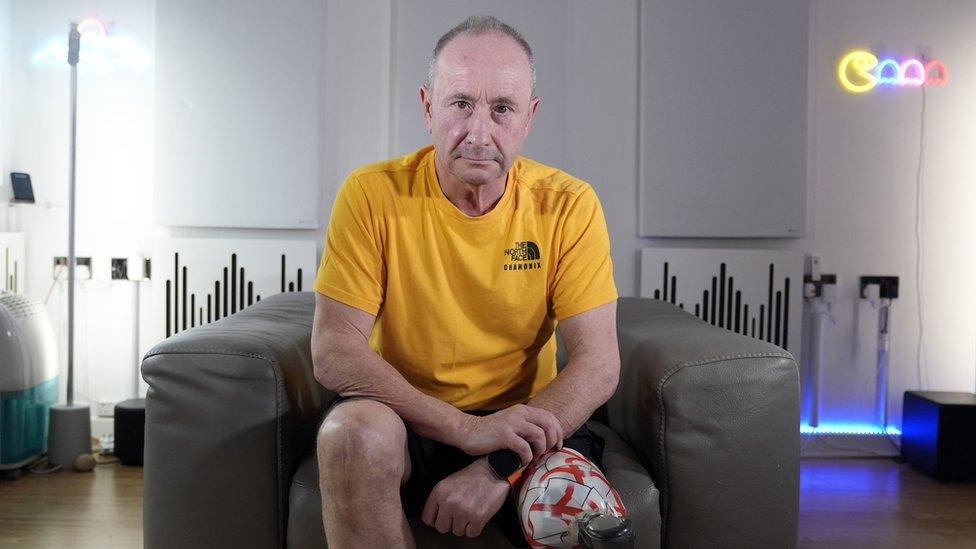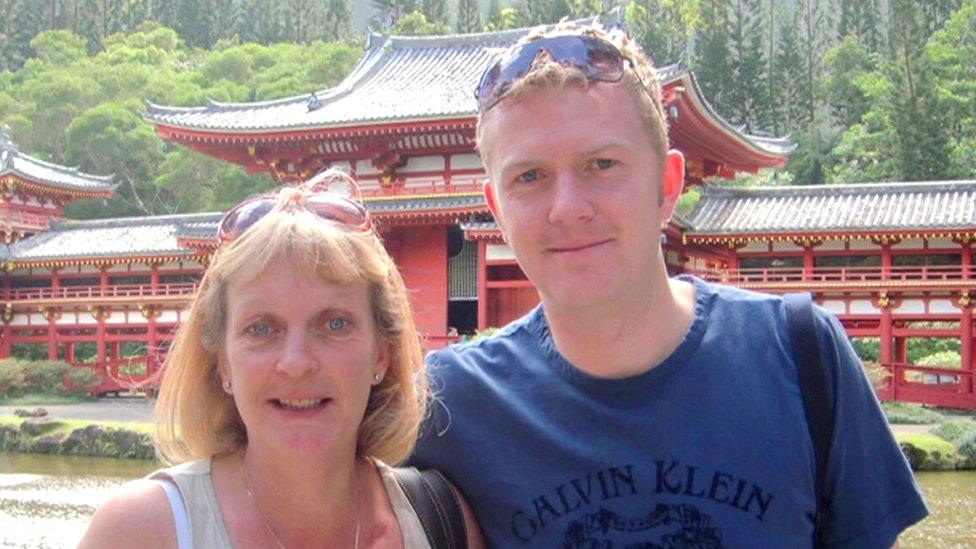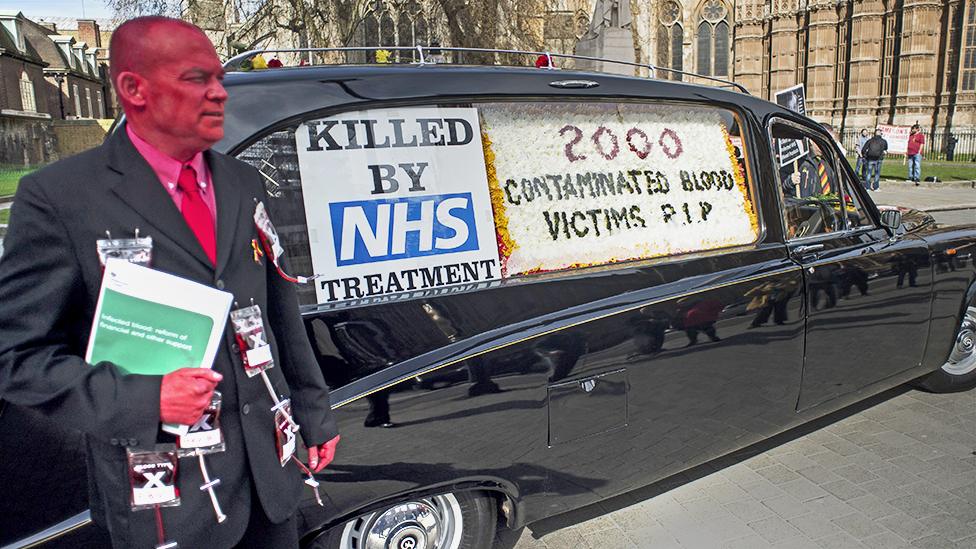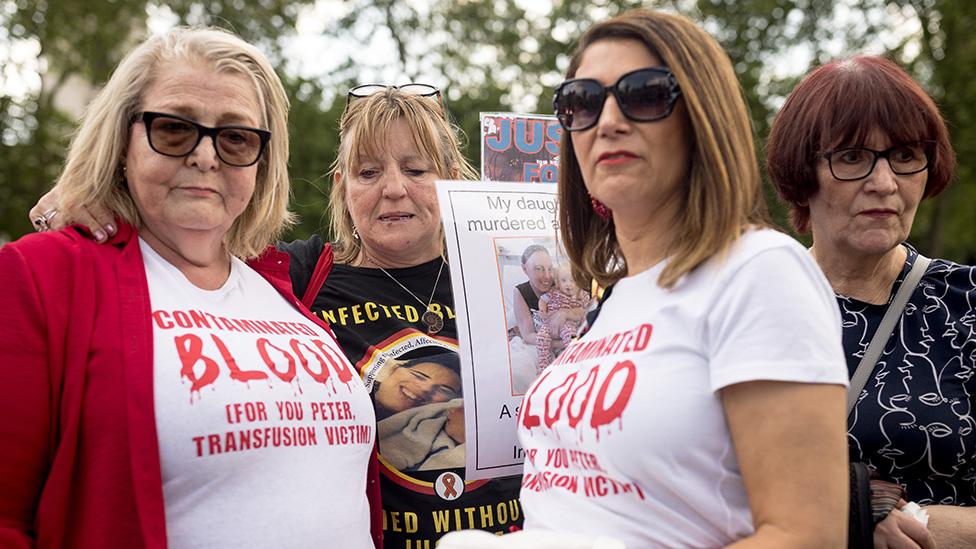Infected blood scandal: Farnborough ex-soldier diagnosed with hepatitis C
- Published

Brendan West found out he had hepatitis C after trying to donate blood during the pandemic
A former Army soldier has said he was given contaminated blood as medics fought to save his life.
After losing his leg in 1979, Brendan West, from Farnborough in Hampshire, was given a blood transfusion while at a British military hospital in Germany.
But four decades later he discovered he was infected with hepatitis C when a blood donation was rejected.
The Home Office said it would continue to listen to the community as it addressed the infected blood scandal.
It is not known for sure if the blood transfusion was the cause of Mr West's diagnosis but he said the timeline seemed to match.
After signing up to the Army in 1976, Mr West was deployed to the British Military base in Germany as part of his work with the Royal Electrical Mechanical Engineers (REME).
While on duty outside of the barracks in 1979, Mr West was hit by a car and rushed to hospital with a leg which was "smashed to pieces", he said.
With his condition deteriorating, the decision was made to amputate his leg and he was given a blood transfusion.
"I wouldn't blame surgeons, or nurses, or whoever gave me the blood, but systematically there is obviously some blame there," he said.

Mr West served as a vehicle mechanic during his time in the Army
Mr West, now 63, only discovered he was infected with the virus when he was turned away from donating blood during the Covid-19 pandemic.
A letter soon arrived in the post informing him hepatitis C antibodies had been detected, and that the blood bank could not take his donation.
Once he had been tested for the virus, he said a specialist nurse told him: "By the looks of the reading, you have had this for more than 20 years."
He added: "We then backtracked through my Army medical records and it seems it was as a result of a blood transfusion from my injuries."
Further tests revealed Mr West, who was born in Colne, Lancashire, had suffered severe liver damage as a result of the virus going undetected for so many years.
'Appalling tragedy'
Mr West said the news had affected his mental health.
He said he felt the government had been "totally uncaring" towards victims of the infected blood scandal.
"Having served my country, and trying to have faith in the government, but all I see publicly is that they're kicking me while I'm down," he said.
A government spokesperson described the infected blood scandal as "an appalling tragedy that never should have happened".
They said a new body would deliver compensation for those affected, once victims had been identified and claims assessed.
The final report of the infected blood inquiry, external is due to be published on 20 May.
The Ministry of Defence declined to comment.

Follow BBC South on Facebook, external, X, external, or Instagram, external. Send your story ideas to south.newsonline@bbc.co.uk or via WhatsApp on 0808 100 2240, external.
- Published9 May 2024

- Published3 February 2023

